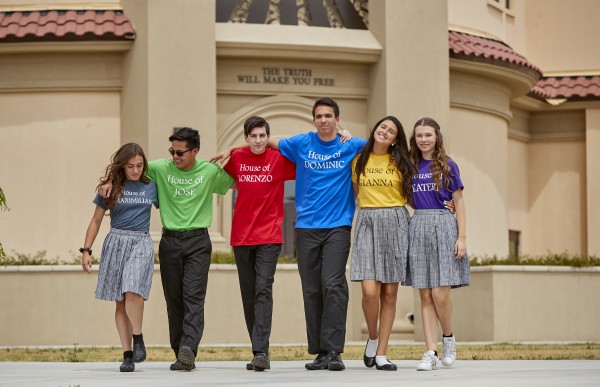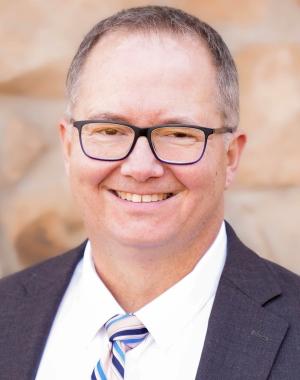
Several years back, at the end of Mass, we listened attentively to a pitch for Catholic education from our well-respected Catholic high school’s football coach. He described his own childhood and the sacrifices his parents made to send their kids to Catholic schools. He asked how many of us adults had attended Catholic schools and a sizeable number of hands went up. He then exhorted us to continue the tradition, to give our children what so many of our own parents had given to us, and to embrace the sacrifice, without which our Catholic schools cannot continue.
While coach’s speech was rousing, as he drew upon our collective pride in our Catholic heritage, important questions arise: what are the deeper reasons why a particular Catholic school is distinct from public schools? Why should a family consider making this sacrifice?
Each Catholic school is meant to be a place where authentic evangelization is frequently experienced, where the Good News of the Gospel breaks upon students in all the important dimensions of their formation. But here’s the challenge: how do we align the culture of our school with the call to radically evangelize, a call that is fundamental to our identity as a school?
This issue of our journal is dedicated to the evangelizing Catholic school. Eight of our contributors examine how we can grow as Catholic schools in our evangelistic identity and mission. We sometimes presume evangelization is accomplished if we communicate the love of God to students. Central indeed as this is, St. John Paul II points out the necessary consequence of receiving the love of God: our freely-willed conformity to the One who loved us first. “The proclamation of the Word of God has Christian conversion as its aim: a complete and sincere adherence to Christ and his Gospel through faith. …Conversion means accepting, by a personal decision, the saving sovereignty of Christ and becoming his disciple.”[1] Catholic school students (and all staff and faculty) need conversion. They need opportunities to choose Christ, to identify as his disciples. This involves giving Jesus sovereignty over our lives, putting him in the place of highest authority.
The General Directory for Catechesis identifies five specific means of evangelization, that is, five ways that the Gospel message and life in Christ must be proposed through every Catholic institution: witness, proclamation, catechesis, the sacraments, and acts of charity.[2] [MOU1] A school that embraces its most fundamental mission to evangelize will rigorously stretch and challenge itself to learn to evangelize in each of these ways.
By way of example, let’s consider the potential impact of “witness” in a Catholic school. I was struck recently by the words of a prominent leader in parish renewal who said that our parishes must become places that foster a “culture of testimony.” This happens when Catholics become comfortable and motivated to share with each other the milestones of their journey towards heaven: their questions and difficulties but also their encounters with God and how they are growing in conversion. Great things become possible when we speak to each other about God’s power and movement in our lives. This brings to mind countless retreats I’ve organized over the years—and two World Youth Days—where in the closing hours we gave participants a chance to speak personally about their own experiences of God’s movement and power. Those moments were always transformative for the whole group, and a glimpse of life lived in a culture of testimony.
While life-giving in a parish, such a climate is also vital to the Catholic school. How can a Catholic school become a place where the truth of God’s existence and love is both studied and encountered—and then made verbal? Establishing such a culture within a school is, of course, incredibly challenging. It presumes that members of the administration, faculty, and staff are confident that God can be personally encountered, that this encounter is transformative, and that this life in Christ is important to cultivate. Such a culture change also means that adults associated with the school regularly encounter God in a transforming way—and that they actively seek out ways to speak personally about God: perhaps by including parent and staff testimonials in written correspondence sent out to families and in large group meetings with parents, or by teachers seeking to associate their teaching of the faith with an accompanying testimony. Such a testimony could be their own, or from another teacher or staff member, or from the life of a saint, or perhaps from a student in the room who is growing in his or her relationship with God.
Building a culture of testimony is but one way that Catholic schools can evangelize. Little steps in this direction will pay immense dividends.
Dr. James Pauley is Professor of Theology and Catechetics at Franciscan University of Steubenville and author of Liturgical Catechesis in the 21st Century: A School of Discipleship (Liturgy Training Publications, 2017).
Notes
[1] John Paul II, Redemptoris Missio, art. 46.
[2] General Directory for Catechesis, see especially art. 46.
This article originally appeared on page 5 of the printed edition.
This article is from The Catechetical Review (Online Edition ISSN 2379-6324) and may be copied for catechetical purposes only. It may not be reprinted in another published work without the permission of The Catechetical Review by contacting [email protected]


















